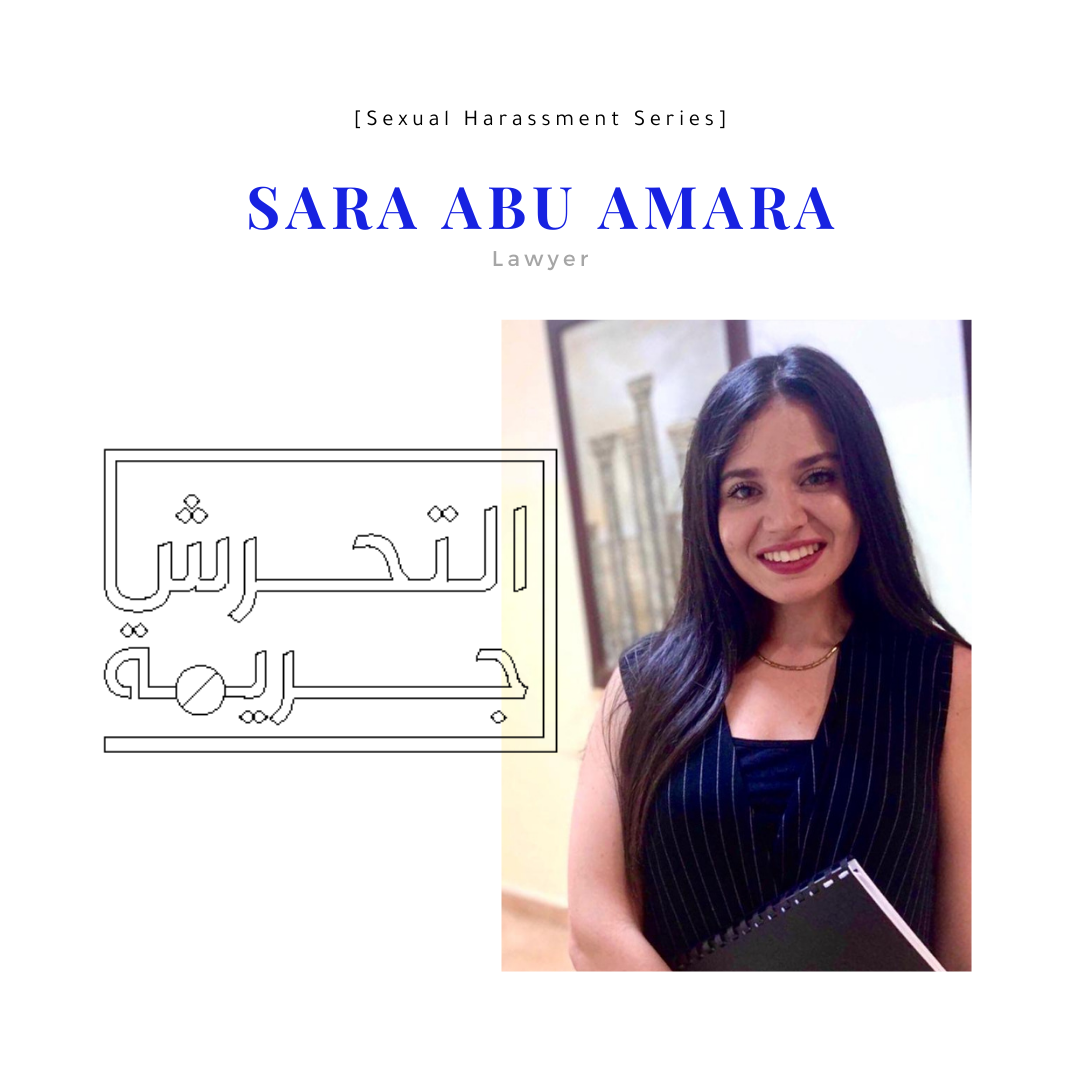
Sarah Abu Amara is a recent law graduate from the University of Jordan and is currently training at Zarumauge Law Firm. She is very passionate about human rights and has participated in many different programs that support women, children, and refugees including political debates that discuss controversial topics of women’s legal rights and equality. She has participated in the Refugee Crisis Vision Solution program in Greece and represented Jordan as a Peace Envoy in the ICYF- DC Islamic conference in Turkey. Sarah’s ambition is to make a difference in the Human Rights sector, particularly in transforming the way that women are viewed in the Middle East and provide protection services by influencing policy-makers from the legal perspective.
Every sector has its difficulties in reference to this issue as it is a problem women in general face regardless of their profession, which makes it hard to address since it is not attached to one sector specifically. Our judicial system & law offices do suffer from this problem and it can vary from simply being looked at in the wrong way or actual physical harassment. Factors that do play a role in such acts can be an individual’s level of education, mentality & morals, location, and women’s awareness on acquiring rights & protection mechanisms.
Yes, and technically no! Jordanian legislation does provide women with protection mechanisms against sexual harassment. The problem lies in enforcing such mechanisms and raising women’s awareness of acquiring such protection. Society tends to justify such acts of harassment and blame it on different factors, such as the way that a woman is dressed, making victims hesitant to take action or obtain protection. Some families tend to punish the victim after realizing that harassment has occurred, leading some victims to stay silent out of fear and societal pressure. Jordanian legislation is not perfect, but laws and regulations are edited and drafted according to the changes in society. It is crucial for our generation to make a difference by not only changing laws, but also in enforcing them.
Yes, the media has played a significant role in Jordanian society, leading to much more awareness on women’s issues. Women are more aware of their rights and the number of women speaking out against sexual harassment has increased. This shift in our mindset has played a role in civil societies, NGOs, and activists who now demand the changing of laws, regulations, and policies. Some demands have been met while other demands are still in the process of being addressed, however, a small change is better than no change at all. As mentioned before, the problem is not whether there are legislations and policies against those acts, but to what extent they are being enforced.
Awareness is key, both for women and men, and is achieved through proper education since sexual harassment is considered to be a taboo subject in our society. We are trying to change this in future generations so that women and girls are able to speak out against harassment with no fear of judgment or blame. Youth should be taught what is considered to be an act of sexual harassment and the proper actions & behavior towards such acts. As for the legal perspective, we search for new ways to assure the enforcement of protection mechanisms and we take responsibility in advocating for those who are vulnerable. Further, we demand gradual changes in our policies and continue to positively influence the decisions of policy-makers. This is a slow process, but as lawyers say, “Law is not affected by the weather of today … but will be by the climate of the era”.